Politics
It Seems Opposition emerged as the winner of the Poland elections
According to an exit poll, the opposition has emerged as the winners of the Polish election. If the vote count validates this outcome, it would signify a significant shift in direction following a fiercely contested election campaign.
WARSAW – The recent general election in Poland suggests that the opposition parties have gained a significant victory, which could bring about a substantial change in the country’s political landscape, as well as have implications for the European Union. The current government, led by the Law and Justice (PiS) party, has been at odds with Brussels for eight years, facing accusations of undermining democratic principles. The opposition’s win could signal a shift in Poland’s relationship with the EU and potentially alter the political dynamics within the bloc.
On Monday afternoon, a final exit poll was published that includes the early vote count. The poll reveals that PiS received 36.1 percent of the support, followed by the centrist Civic Coalition with 31 percent, the center-right Third Way with 14 percent, the Left with 8.6 percent, and the far-right Confederation with 6.8 percent. In the previous year of 2019, PiS had won 43.6 percent of the votes. IPSOS conducted the poll, which was then shared with Poland’s primary television networks.
Despite the Law and Justice party’s initial success in gaining support, their victory can be seen as a hollow one since the three main opposing parties would collectively hold the majority of seats in the 460-member parliament.
According to the exit poll, the voter participation rate was 72.9 percent, setting a new record.
The ruling party utilized the government’s resources to bolster its chances of success, and state media, which is aligned with the ruling party, provided strong support. However, the party faced numerous scandals, including allegations of corruption and the sale of visas for bribes. Additionally, the party’s leadership was marred by eight years of tensions and conflicts with society, including disputes over abortion, the rule of law, grain imports from Ukraine, and strained relations with the EU, which has withheld billions of dollars in funding due to concerns over the rule of law. These factors contributed to a decline in support for the ruling party.
Despite the eleventh-hour introduction of a controversial referendum with multiple loaded questions aimed at discrediting the opposition, the PiS party’s supporters remained unenthusiastic, resulting in an insufficient turnout to legitimize the vote.
It appears that PiS may not win enough seats to have a majority in parliament, even if it teams up with Confederation, which has stated it will not form a coalition with Law and Justice. The remaining three parties have promised to collaborate in order to remove PiS from power.
The final exit poll indicates that Law and Justice is projected to obtain 196 seats, while Civic Coalition is expected to secure 158 seats. Third Way is estimated to win 61 seats, followed by the Left with 30 seats, and Confederation with 15 seats.
The opposition parties, comprising three prominent groups, would hold a combined total of 249 seats in the parliament, while the ruling PiS party and its Confederation ally would have 211 seats.
The tally of votes is anticipated to be concluded and announced by the morning of the following Tuesday.
Surprising Outcome
Jarosław Kazcyński, leader of PiS, considered the outcome a success for his party, but acknowledged the uncertainty regarding its impact on their tenure in government. He expressed hope that they would be able to translate this achievement into another term in office, while also emphasizing their commitment to advancing their agenda, whether they remain in power or move into opposition.
He emphasized that his party is committed to seeing its program through to completion.
The outcome brought great enthusiasm to Donald Tusk, the head of the Civic Coalition.
“I have never been so happy in my life with this supposed second place, Poland won, democracy won. We removed them from power,” said ex-prime minister and European Council president, played a pivotal role in bolstering the opposition’s aspirations upon my reentry into Polish politics in 2021.
“We will create a good new democratic government with our partners,” he said, denouncing the past eight years of “evil.”
The opposition pledged to restore and strengthen relations with the European Union.
Robert Biedroń, a prominent figure of the Left, announced that Poland will be rejoining Europe on October 15th.
After the vote count is completed, President Andrzej Duda will be responsible for the next step. He has indicated that it is customary for presidents to select a member from the largest party to be nominated as the prime minister, allowing them the initial opportunity to assemble a government.
Despite the potential partnership with Confederation, Law and Justice (PiS) is unlikely to secure enough seats in parliament to attain a majority, according to Sean Gallup/Getty Images. In such a scenario, the president’s chosen candidate would have two weeks to form a government and seek a parliamentary vote of confidence. If unsuccessful, the parliament would then have the opportunity to nominate a prime minister.
Poland’s recent election was characterized by an exceptionally contentious and divisive campaign season, one that stands out as one of the most acrimonious in the country’s history of democratic politics.
Kaczyński portrayed the opposition as a significant danger to the country’s existence. He alleged that Tusk was colluding with Berlin and Brussels to undermine Poland’s autonomy and allow an influx of migrants from Muslim nations.
The criticism suggests that if PiS is re-elected for a third term, it would solidify their grip on power and steer Poland towards an authoritarian system, similar to Hungary’s, where the government has considerable influence over the judiciary, media, and state-owned enterprises, thereby undermining Poland’s democratic foundations.
“We will be keeping an eye on these elections throughout the night,” Tusk said. “As you know, tens of thousands of people are sitting in the precincts. They are watching, no one will steal these elections from us anymore. We will guard every vote.” Tusk stressed that every vote will be safeguarded, and that the organization will not allow any attempts to manipulate the outcome.
Politics
New plan will help EU countries tackle cyber-attacks better
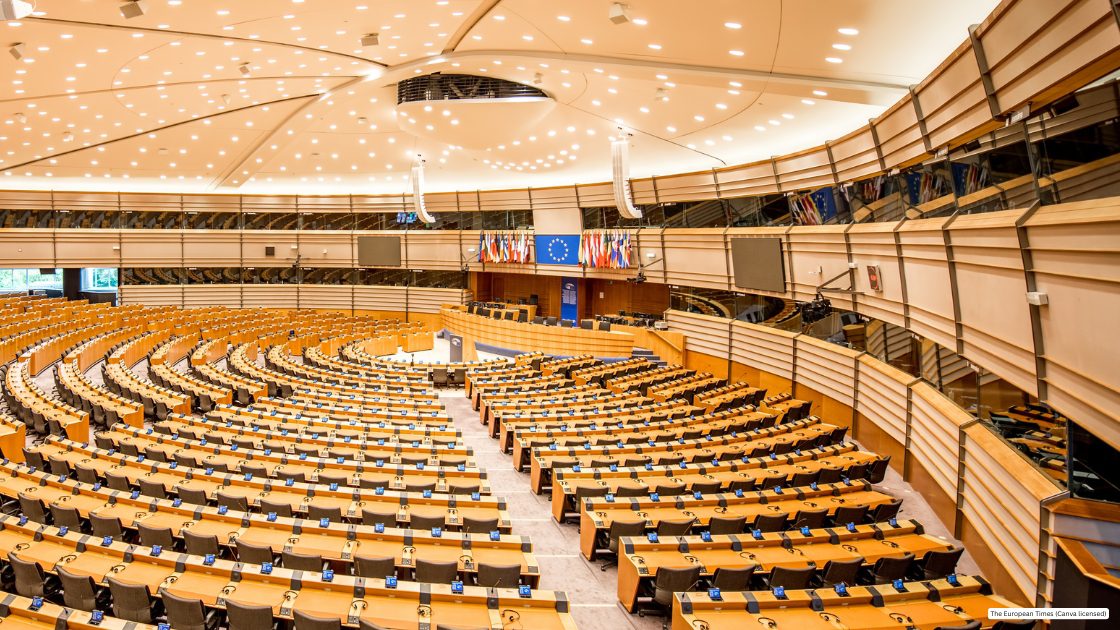

© FRVS+MPCP 2022. The European Times® News is registered as an EU Trademark. All rights reserved. The European Times® and the logo of The European Times® are EU trademarks registered by FRVS+MPCP.
Members/Partners of

About Us
Popular Category
DISCLAIMER OPINIONS: The opinions of the authors or reproduced in the articles are the ones of those stating them and it is their own responsibility. Should you find any incorrections you can always contact the newsdesk to seek a correction or right of replay.
DISCLAIMER TRANSLATIONS: All articles in this site are published in English. The translated versions are done through an automated process known as neural translations. If in doubt, always refer to the original article. Thank you for understanding.
DISCLAIMER PHOTOS: We mostly used photos images that are readily available online, from free sources, or from the people promoting the news. If by any chance it happens that we have used one of your copyrighted photos, please do not hesitate to contact us and we will take it down without question. We do not make profits as this is a not for profit project to give voice to the voiceless while giving them a platform to be informed also of general news, and it is completely free.
Editor Picks
Politics
EYE2025 (European Youth Event): thousands to celebrate the power of democracy | News
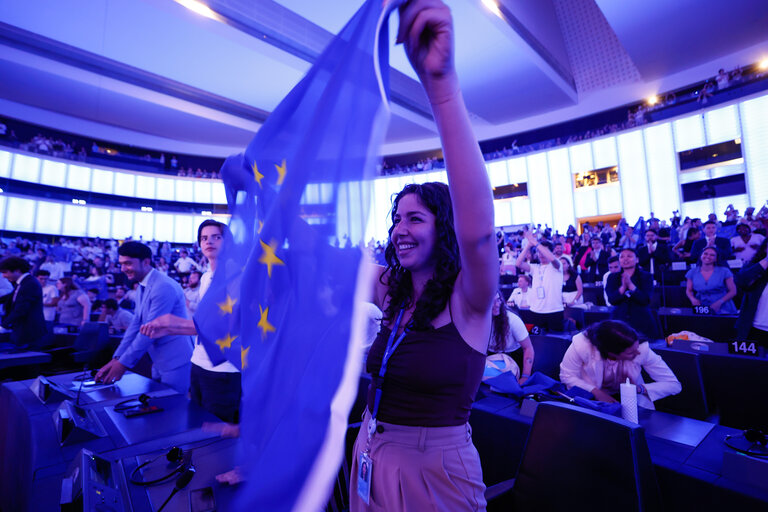
EYE2025 (European Youth Event) will be opened by Parliament Vice-president Sabine Verheyen (EPP, DE) on Friday 13 June at 10:00 in the EYE village. Vice-president Nicolae Ştefănuță (Greens/EFA, RO) will take part in a session dedicated to the next long-term budget, on Saturday at 15:00. The closing session, with Vice-president Pina Picierno (S&D, IT), will take place on Saturday at 16:45.
Over the two days, there will be panel discussions with MEPs and other EU decision-makers, as well as with experts, activists and content creators. Debates between MEPs and the young participants will cover climate justice, skills for the future, the EU’s next long-term budget, and freedom of speech and media, among many other topics.
Commissioner for Intergenerational Fairness, Youth, Culture and Sport Glenn Micallef will lead a Youth Policy Dialogue on Friday at 11:00, and take part in a panel discussion on young people’s mental health that afternoon. Executive Vice-President of the Commission, Henna Virkkunen will join in a conversation on how technology can strengthen democracy, on Friday at 15:00.
Other guest speakers are democracy activist Daria Navalnya, the Kayapo Amazonian tribal leader Chief Tau Metuktire and the Mayor of Strasbourg Jeanne Barseghian.
The programme also includes workshops on a wide range of issues that concern young people, from disinformation to housing and migration. Quizzes, tours, artistic performances, storytelling workshops and concerts are other options among more than 450 activities organised for the sixth edition of EYE.
All sessions in the hemicycle will be streamed live on the EYE2025 Facebook page and via Parliament’s Multimedia Centre. More details about the schedule, speakers and activities are available on the European Youth Event website.
Press briefing
On Friday 13 June at 16:30, there will be a press briefing with Vice-president Verheyen on media freedom in the EU, in the Daphne Caruana Galizia press conference room. You can follow it live here.
Source link
Politics
Galician healthcare system receives nearly €510 million in EU support for its modernisation
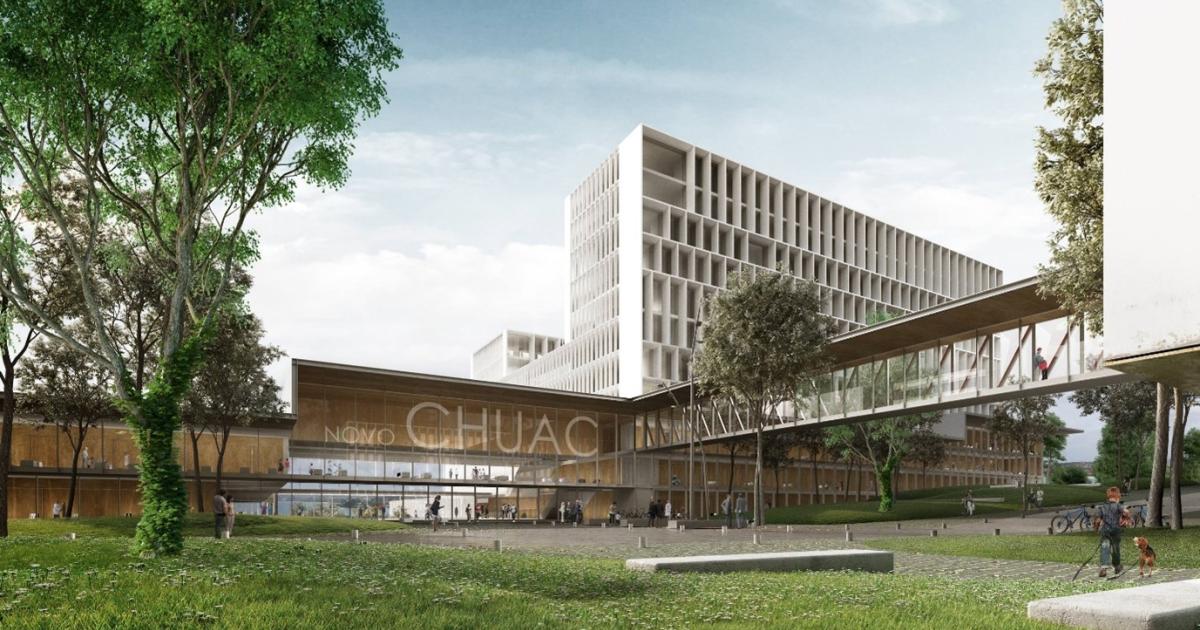
The European Commission supports the development of the new A Coruña university hospital complex (CHUAC) in the city of A Coruña, located in the Spanish region of Galicia. The grant of nearly €60 million awarded under the Public Sector Loan Facility (PSLF), as part of the Just Transition Mechanism (JTM), complements a loan of €450 million provided by the European Investment Bank (EIB), and Xunta de Galicia’s own resources, bringing the total investment to €600 million.
This social infrastructure project of regional interest aims to expand and modernise the existing hospital complex in A Coruña. It is one of Xunta de Galicia’s major actions to strengthen its public healthcare system. The new hospital complex will include state-of-the-art infrastructure and facilities to provide comprehensive and high-quality healthcare and medical services for patients.
The resulting modern and sustainable healthcare infrastructure will improve the provision of health services and the quality of life of the citizens of Galicia, which in turn will enhance regional convergence with a significant impact on the local economy and employment.
Thanks to this project, around 564 000 people are expected to benefit from more efficient, accessible and quality health services in A Coruña and the surrounding areas. The project is also expected to create an estimated 6 140 direct and indirect jobs related to health infrastructure, representing approximately 1.3% of the employed population in A Coruña. With its energy efficiency measures, bioclimatic architecture, as well as sustainable and smart resources management, the project can substantially contribute to climate change mitigation.
This investment therefore plays a crucial role in mitigating the long-term socioeconomic consequences of the coal-fired plants closures in the region, while promoting a sustainable and an inclusive recovery for Galicia in the context of the region’s ageing demographic and green transitions.
Emma Toledano Laredo, Director at the European Commission (DG REGIO), said:
The European Commission, together with CINEA and the EIB, is very proud to bring the new A Coruña university hospital complex to life thanks to the Public Sector Loan Facility. This green, innovative and people-first project will enhance the provision of healthcare to Galicians, while bringing jobs to the region. This is yet another example of how a just and green transition can bring improvement in all sectors of a regional economy and its people.
Paloma Aba Garrote, Director of CINEA, added:
The new A Coruña university hospital complex is an excellent example of how the Public Sector Loan Facility can support European regions in their transition towards climate neutrality and improve people’s lives. Together with our partners, we are proud to invest in a sustainable and modern healthcare infrastructure, which will provide high-quality and accessible services for Galicians while fostering social cohesion, regional convergence and sustainability.
A spokesperson for the Xunta de Galicia regional government stated:
This project aiming to modernise and expand the A Coruña university hospital complex is a fundamental investment to develop the Galician healthcare infrastructure. Galicia is the first Spanish region to receive support from the Public Sector Loan Facility. Moreover, the new CHUAC project has been awarded the biggest PSLF grant so far, amounting to €59.3 million.
About PSLF
The Public Sector Loan Facility (PSLF) is the third pillar of the Just Transition Mechanism (JTM) – a key tool of the European Green Deal Investment Plan to make sure that no one and no region is left behind in the transition to a climate-neutral economy.
The PSLF combines loans from the European Investment Bank (up to around €6-8 billion) with grants from the European Commission (up to €1.3 billion). The combined support is designed to mobilise additional investments for public sector entities in the regions most affected by the green transition as identified in the Territorial Just Transition Plans, to meet their development needs as they move towards a climate-neutral economy. Each Member State creates these plans to identify the challenges faced by just transition regions, along with their development needs and targets for 2030.
The combination of the European Investment Bank loan and the EU grant will help fund projects that do not generate enough revenues to cover their costs.
PSLF is managed by DG REGIO and implemented by CINEA.
About DG REGIO
The Directorate-General for Regional and Urban Policy (DG REGIO) is the department of the European Commission responsible for EU policies on regions and cities. It develops and carries out the Commission’s policies on regional and urban policy. It assists the economic and social development of the developed and less developed regions across the European Union.
About CINEA
The European Climate, Infrastructure and Environment Executive Agency (CINEA) is an Executive Agency established by the European Commission to implement parts of EU funding programmes for transport, energy, climate action, environment and maritime fisheries and aquaculture. CINEA aims to assist its beneficiaries, establish strong partnerships, deliver high-quality programme and project management, foster effective knowledge sharing and create synergies between programmes – to support a sustainable, connected, and decarbonised Europe.
About the EIB
The European Investment Bank (EIB), whose shareholders are the 27 Member States of the European Union, is the EU’s long-term financing institution. The EIB provides loans to the public and private sectors to support high-quality investments contributing to the achievement of the EU headline targets.
Visit the PSLF webpage on CINEA website to find out more about the Facility and the projects it funds.
-
EU & the World6 days ago
Aurora Borealis Forecast: Where & When to See the Northern Lights Tonight
-

 EU & the World7 days ago
EU & the World7 days agoRihanna’s Parents: About Her Late Dad Ronald Fenty & Mom Monica Braithwaite
-

 Sports6 days ago
Sports6 days agoOfficial: Damien Comolli new general manager of Juventus.
-

 EU & the World7 days ago
EU & the World7 days agoLoretta Swit’s Net Worth: How Much Money the ‘M*A*S*H’ Alum Had
-

 EU & the World7 days ago
EU & the World7 days agoTaylor Swift’s Net Worth: How Much Money She Has in 2025
-
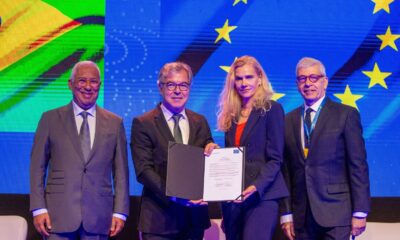
 Politics7 days ago
Politics7 days agoEurope and Brazil Forge a New Economic Alliance: A Strategic Bet on Stability, Sustainability, and Shared Values
-

 EU & the World7 days ago
EU & the World7 days ago‘King of the Hill’ Revival: Upcoming Hulu Sitcom’s Release Date & More
-
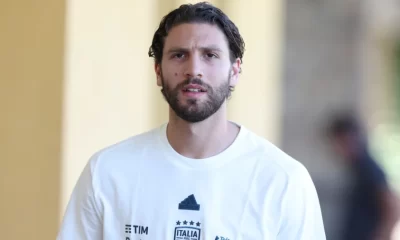
 Sports5 days ago
Sports5 days agoManuel Locatelli forced to leave Italy's training camp








